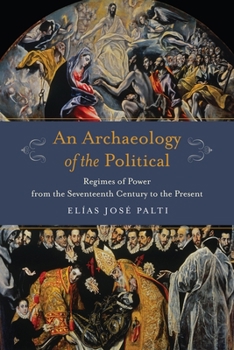An Archaeology of the Political: Regimes of Power from the Seventeenth Century to the Present
(Part of the Columbia Studies in Political Thought / Political History Series)
Select Format
Select Condition 
Book Overview
In the past few decades, much political-philosophical reflection has been dedicated to the realm of "the political." Many of the key figures in contemporary political theory--Jacques Ranci re, Alain Badiou, Reinhart Koselleck, Giorgio Agamben, Ernesto Laclau, and Slavoj Žižek, among others--have dedicated themselves to explaining power relations, but in many cases they take the concept of the political for granted, as if it were a given, an eternal essence.
In An Archaeology of the Political, El as Jos Palti argues that the dimension of reality known as the political is not a natural, transhistorical entity. Instead, he claims that the horizon of the political arose in the context of a series of changes that affirmed the power of absolute monarchies in seventeenth-century Europe and was successively reconfigured from this period up to the present. Palti traces this series of redefinitions accompanying alterations in regimes of power, thus describing a genealogy of the concept of the political. Perhaps most important, An Archaeology of the Political brings to theoretical discussions a sound historical perspective, illuminating the complex influences of both theology and secularization on our understanding of the political in the contemporary world.Format:Paperback
Language:English
ISBN:0231179936
ISBN13:9780231179935
Release Date:May 2020
Publisher:Columbia University Press
Length:264 Pages
Weight:0.75 lbs.
Dimensions:0.7" x 5.6" x 8.7"
Customer Reviews
0 rating





